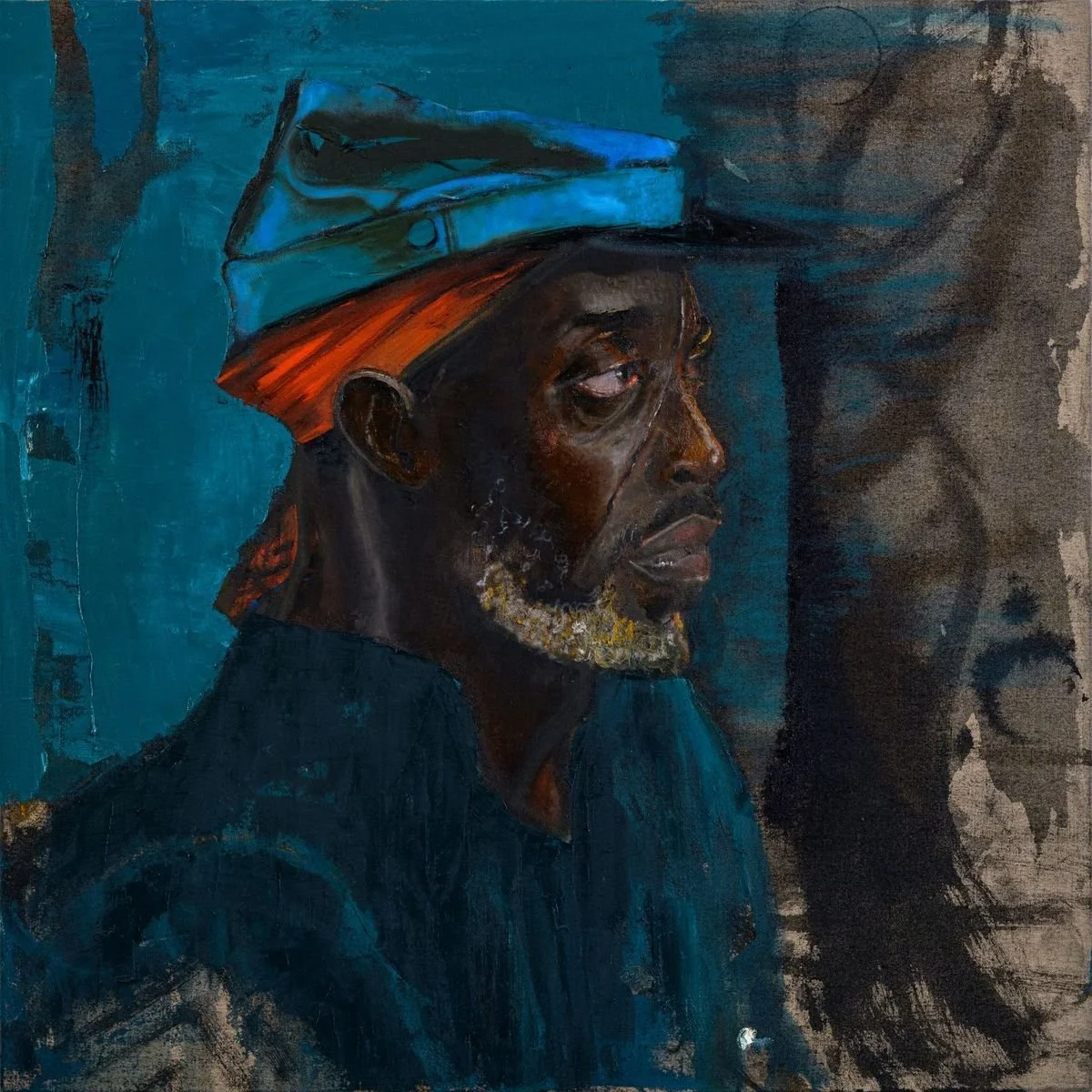The Sophistication of Feelings
As I read the New York Times article about artist Chaz Guest, one particular description struck me: “He unabashedly tries to bring out these big feelings.” Bringing out feelings, big or otherwise, isn’t something that is typically encouraged in our societal interactions. That’s because feelings can be messy, sometimes confusing, and that we have been taught to lean on the rational, logical, and linear. Most often, we don’t trust our feelings. They are connected to body sensations that we don’t always know how to interpret, and so it’s easier to step away from them.
Chaz Guest is leaning into his feelings, crediting this from an epiphany he had while painting onstage at the behest of jazz saxophonist Kenny Garrett. Experiencing Garrett’s quartet, Guest says, "Something mysterious is happening. Whereas it used to be a laboring thing when I paint, now it feels like information is simply flowing through me. That [painting with the quartet] really opened me up! I had to rely more on feeling than precise execution. It's like Miles Davis used to say: 'Don't think about shit you already learned!'" Guest puts his brushes to the canvas with John Coltrane and other jazz greats filling the ether around him.
Guest’s big feelings have taken form in the creation of a Black superhero—sparked by a suggestion from his son—stemming from his interest in and paintings of Buffalo Soldiers, the all-Black US Army regiments that served on the Western front after the Civil War. The late actor Michael K. Williams posed for some of these paintings. Calling his superhero Buffalo Warrior, Guest envisions him fighting evil on a spiritual plane. The fight is also to reveal the elegance of a people who persevered through the abominations of institutions like slavery and Jim Crow, yet “survived and did well.”
In a Hollywood 360 interview, Guest says: “I feel very powerful. I feel very enlightened. I feel very healthy and blessed. I just need to do something gigantic. To help humanity. If I can push humanity just a bit further, I won’t die pissed off.” There’s a soulful reverberance in Guest’s words that are a declaration of joy in living.
If art, as American philosopher Susanne Langer says, is feeling in form, then every stroke of Chaz’s brush beautifully plucks the meaning of each feeling-string and harmonizes it into a visual panoply of Black heroism and heroinism, brilliance, and excellence.
Feelings are how we touch, see, savor, and respond to the world around us, giving it depth of meaning. We make meaning of our experiences through a combination of feelings, sensations, and thoughts. Feelings—our embodied experiences—inform how we navigate the never-ending cycles of our life journey. Our feelings are powerful expressions of our existence taking shape and form. We know what is pleasurable and what is not, what is acceptable and what is not, what we value, and so this is how we grow and develop.
In the Biology of Wonder: Aliveness, Feeling, and the Metamorphosis of Science, author Andreas Weber says, “Life is feeling itself.” Weber says that every cell experiences value as a form of self-preservation, and, as feeling is the experience of value, it’s the most fundamental level of reality. He states that feeling is the scale by which a being understands what is relevant to survive and progress. This subjectivity is an ever-present sensing system to assess existential experience as a measure of coping with real life situations in the world.
Feeling is the common language of all cells and beings, the language of bodies and of poets.
—Andreas Weber
Profiled: “The Blackman” & Stereotypes
CBS anchor Gayle King recently interviewed Tina Knowles-Lawson about her upcoming documentary Profiled: “The Blackman” & Stereotypes. Knowles-Lawson created the documentary to address the ever-present, derogatory perceptions of Black men based on a myriad of stereotypes, such as being aggressive, lazy, and unintelligent which habitually give rise to the feelings of fear, mistrust, and contempt thrust on them. To combat these pervasive feelings that disparage and degrade Black men, Knowles-Lawson is painting a different picture—one that more truly depicts the worthiness and value of Black-American men. Gayle said that as she viewed the documentary, feelings of anger and sadness arose in her, which, by the end of the documentary shifted to a feeling of uplift. Profiled: “The Blackman” & Stereotypes is a 4-part series that will air on the Discovery Channel starting tomorrow night.
Both Guest and Knowles-Lawson aspire to change the perception of Black people, in order to change the feelings that dictate how they are treated. Getting beyond tainted perceptions to a deeper level of genuine understanding and thereby more authentic feelings, is a long, arduous process; one that Knowles-Lawson acknowledged is sometimes a fleeting hope.
How can we be more present to our feelings and recognize when they are based on groundless perceptions?
How do we get to a deeper level of collective feeling that truly holds everyone at their highest value?
We can empathize and be compassionate because we recognize and know the feeling associated with certain experiences—the joy of welcoming a newborn, the grief over the death of a loved one, or the thrill of achieving a career goal—there’s a universality we can all comprehend. It’s when we refuse to acknowledge that universality that we diminish others, and ourselves.





